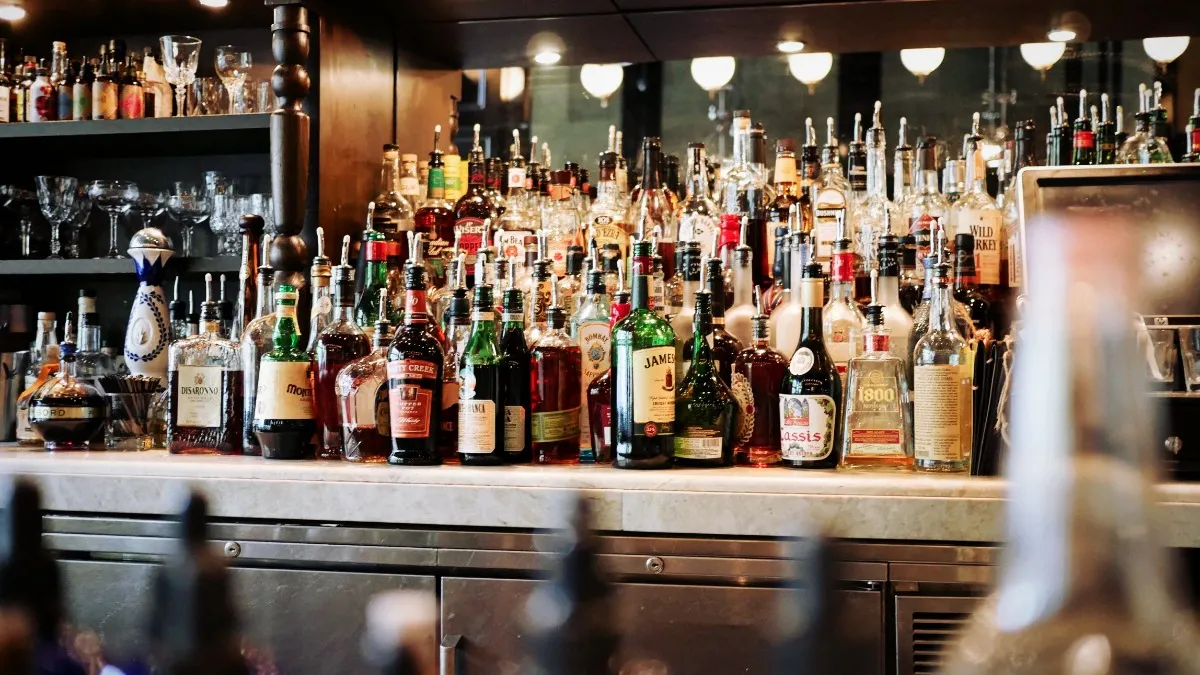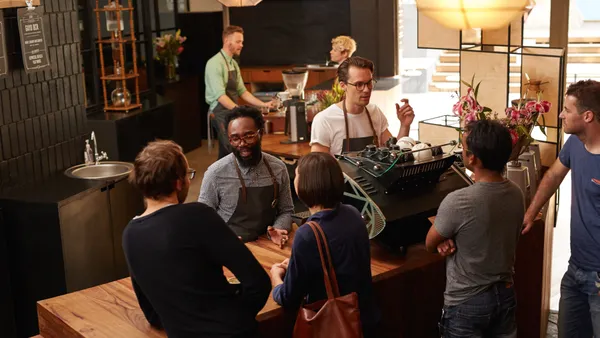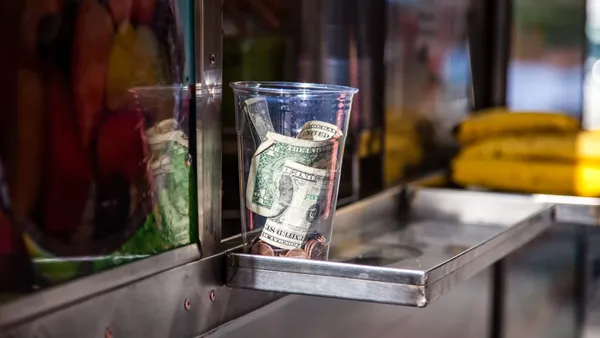Dive Brief:
- Texas bars and related establishments can update their gross receipts calculation to qualify as a restaurant if alcoholic beverages have made up less than 51% of sales, according to a Thursday industry notice from the Texas Alcoholic Beverage Commission (TABC).
- The new calculation is based on gross receipts from April 1 through the date of submission to TABC and includes all on-premise alcoholic beverages, all on-premise and to-go food sales and all non-alcoholic and non-food sales, such as clothing and merchandise. The calculation doesn't include off-premise or wholesale alcoholic beverages.
- By reclassifying as a restaurant, these bars would be able to reopen for customers to drink and dine inside.
Dive Insight:
Bars in Texas were forced to close again in late June following a statewide surge in COVID-19 cases, a move that has been widely criticized by bar owners across the state. Data from Yelp suggests that states that experienced the biggest increases in novel coronavirus cases in June also saw a 50% increase in consumer interest in restaurants, bars, nightlife and gyms in May.
Despite this correlation, about 800 bar owners said they would defy Gov. Greg Abbot's mandate by reopening on Saturday as part of a "Freedom Fest." Bars in North Texas filed a $1 million lawsuit against the governor, claiming that the order to close violates the state's constitution and the Texas Disaster Relief Act. The Texas Restaurant Association petitioned the state in early July to change the definition of restaurant, and said that 1,500 restaurants were unfairly classified as bars and forced to close because over 51% of their sales came from alcoholic beverages.
The stakes are very high for many of these businesses. One-third of breweries report they are likely to close within three months, while two-thirds don't expect to make it through the end of the year if their taprooms aren't allowed to reopen and/or these businesses don't receive significant support, according to Eater.
At the same time, the state has struck back against bars that defy this latest order. TABC has suspended licenses at several bars, including several bars and nightclubs in Houston. Some bar owners have also been arrested for defying the order.
The new rule from the TABC could help many bars that also serve a significant portion of food either in-house or through an onsite food truck avoid going up against the state. A bar in El Paso, for example, that earns around 45% of its sales from food and 55% of its sales from liquor, applied for a restaurant license in early July and has since reopened for dine-in, according to its Facebook page. Several breweries, which make a bulk of their sales through wholesale and retail sales, have reopened their taprooms and patios under the new license modifications as well.














